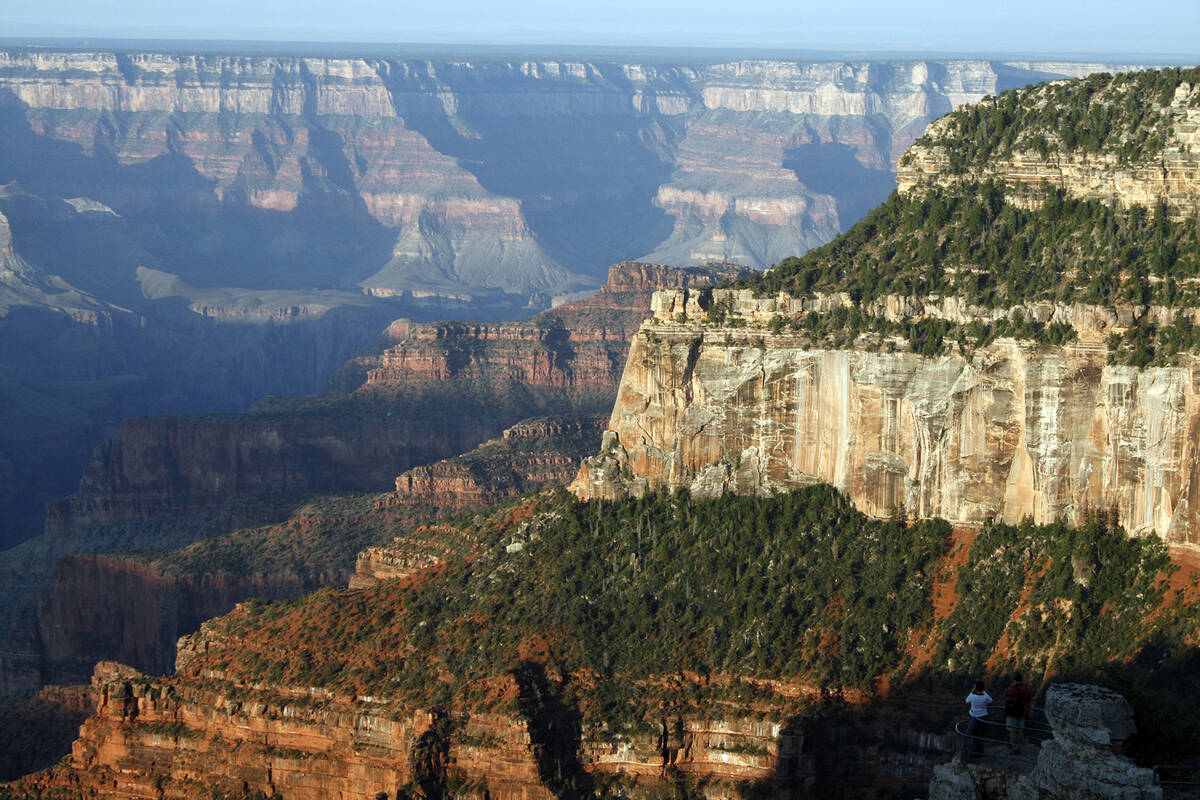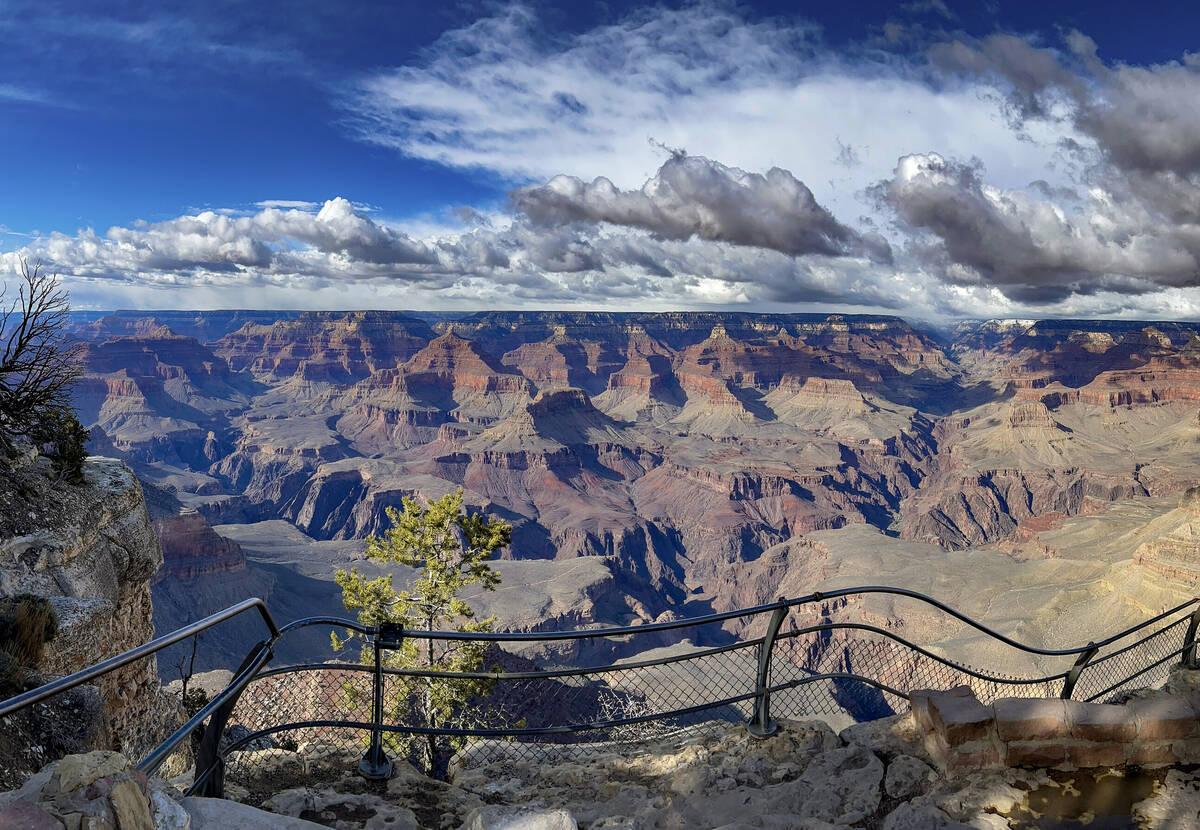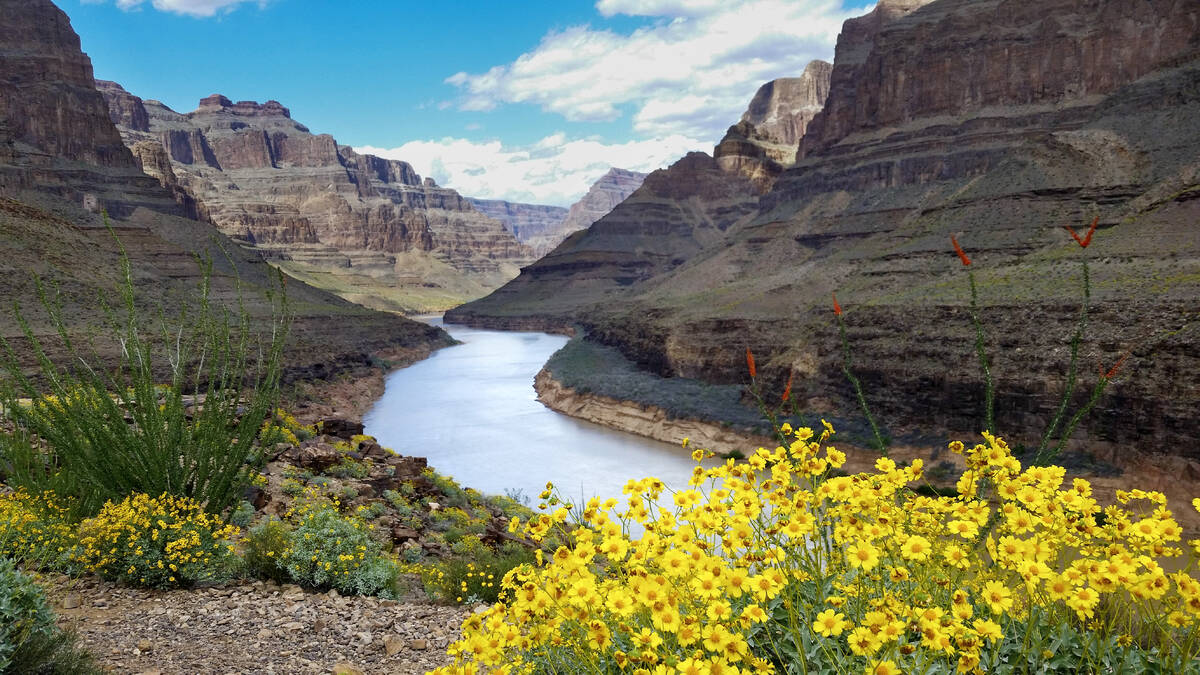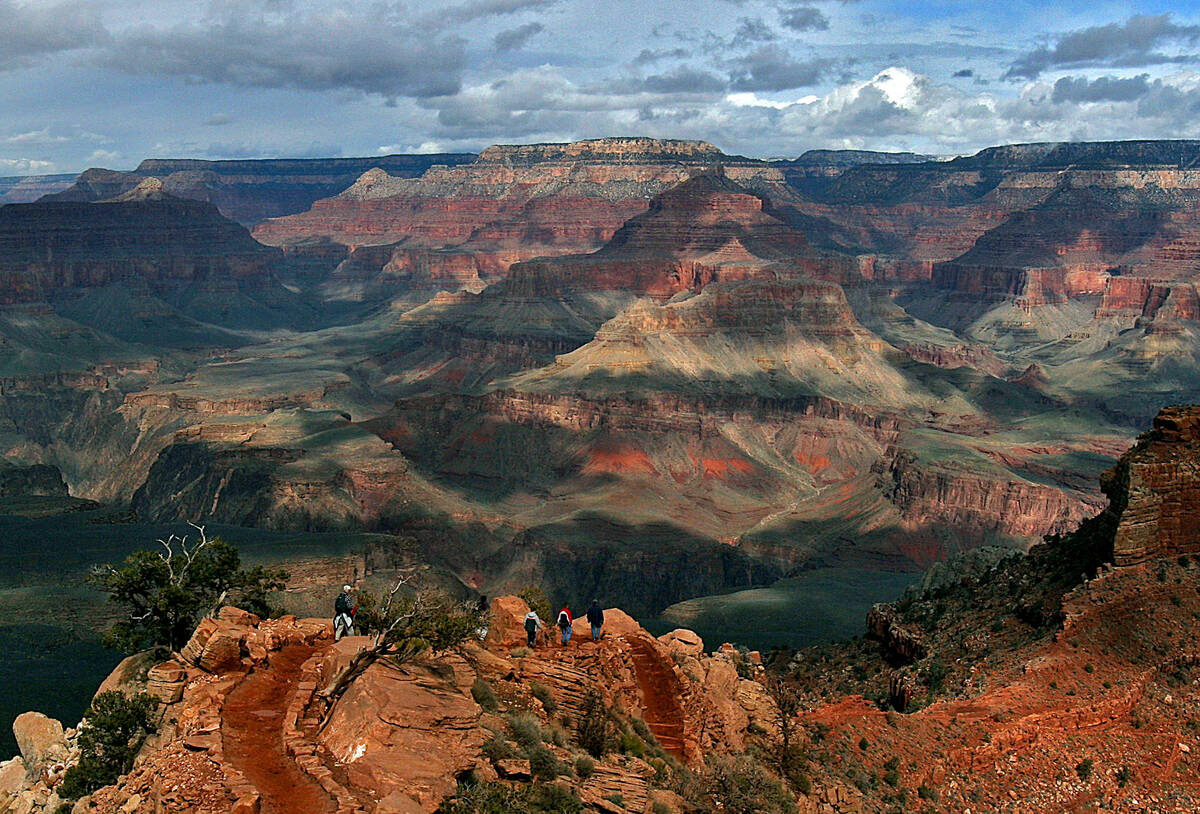How to hike Grand Canyon National Park overnight
Less than a five-hour drive to the east from the Las Vegas Valley is one of the seven natural wonders of the world, the Grand Canyon National Park.
Encompassing close to 300 miles of the Colorado River and surrounding lands in Northern Arizona, the gorge attracts millions of visitors on a yearly basis due to its breathtaking views and varied natural landscape.
Tourists can do day trips to the Grand Canyon, however if you are looking to up your adventure game, there are various hikes that take multiple days and require people to camp. So, if you’re up for this, how does one go about doing it?
Joelle Baird, a public affairs officer at the Grand Canyon National Park, said the first thing hikers need to do is have an honest conversation with themselves about their level of experience and ability, and that any overnight hike requires “careful planning and preparation to ensure safety and enjoyment.”
“The Grand Canyon trails can be strenuous, especially the steep ascents on the way back up. Be honest with yourself about your fitness level and choose trails that match your abilities,” she said.
With that in mind, Baird offered a number of hikes for readers, broken down into two categories:
Single-day hikes:
Bright Angel Trail to Havasupai Gardens: This hike descends into the canyon along the Bright Angel Trail to Havasupai Gardens. It’s approximately 9.6 miles round trip and offers stunning views of the canyon walls and the Colorado River. Allow six to nine hours for the round trip, depending on your pace and trail conditions.
South Kaibab Trail to Cedar Ridge: For a shorter hike, consider the South Kaibab Trail to Cedar Ridge. This out-and-back hike is about 3 miles round trip and provides panoramic views of the canyon. Allow two to four hours for the round trip.
Two/three-day hikes:
South Kaibab Trail to Bright Angel Campground: For a more extended overnight experience, hike from the South Kaibab Trailhead to Bright Angel Campground along the Colorado River. This route is approximately 11 miles one way. Plan for two days to hike down to the campground and back up, with an overnight stay at the campground. Allow six to nine hours for the descent and eight to 12 hours for the ascent.
North Kaibab Trail to Cottonwood Campground: Explore the North Rim of the canyon by hiking from the North Kaibab Trailhead to Cottonwood Campground. This hike is about 14 miles round trip. Plan for two days to hike to the campground and back, with an overnight stay. Allow seven to 10 hours for the round trip, depending on your pace.
Essentials to pack
Once you’ve picked your hike, Baird said there are a number of things to take into account, the first being the essentials to pack, and she offered a full list for hikers.
Water: Hydration is crucial, especially in the desert environment. While there are potable water sources along the Bright Angel and North Kaibab Trails, there is periodic routine maintenance and pipeline breaks that may interrupt water availability. Always bring a water filtration device with you just in case.
Food: Pack high-energy snacks (especially with lots of salt) and meals to fuel your hike.
Appropriate clothing: Dress in layers suitable for the weather conditions, including a hat, sunscreen and sturdy hiking shoes.
First aid kit: Include essentials like bandages, antiseptic wipes and blister treatment.
Emergency shelter: A lightweight tent or emergency bivvy can provide shelter if needed.
Flashlight/headlamp: Essential for navigating in the dark or in case of emergency.
Bandanas/cotton T-shirt: These are useful to dip into creeks or spigots to help you stay cool during the hot summer months.
Communication: Carry a charged cell phone or satellite communication device for emergencies. However, note that cell service may be limited or nonexistent in many parts of the park.
Do your homework
Next up is pre-hike preparation, which is broken down into five categories:
Research trails: Familiarize yourself with the trails you plan to hike, including distance, elevation gain, and difficulty.
Check weather conditions: Be aware of the weather forecast and plan accordingly.
Permits: All backcountry areas and campgrounds require permits, especially during peak seasons. Visit www.recreation.gov to obtain permits in advance for the backcountry as well as the rim campgrounds.
Trail closures: Check for any trail closures or restrictions on the park’s website before your hike. Our key hiking messages webpage is a one stop shop for visitors planning on hiking.
Leave No Trace: Familiarize yourself with Leave No Trace principles and practice responsible hiking and camping.
Baird said you should also take seasonal considerations into account, which includes preparing for extreme heat by hiking early in the morning or late in the afternoon in the summer, and carrying extra water and wearing lightweight, breathable clothing. In the winter, dress in layers to stay warm, especially at higher elevations where temperatures can drop significantly, and also be prepared for icy trails and shorter daylight hours.
If you are planning on hiking alone, Baird has some key advice.
“While hiking alone can be risky, experienced hikers who are well-prepared and familiar with the terrain may choose to do so. However, it’s essential to inform someone of your plans, including your intended route and expected return time.”
Finally, Baird said hiking the Grand Canyon can be an “incredible experience,” but reiterated the challenges that hikers may face given the steep and rugged terrain, extreme temperatures and limited access to water, and that anyone hiking overnight should be “experienced and adequately prepared for the journey.”
Contact Patrick Blennerhassett at pblennerhassett@reviewjournal.com.

























